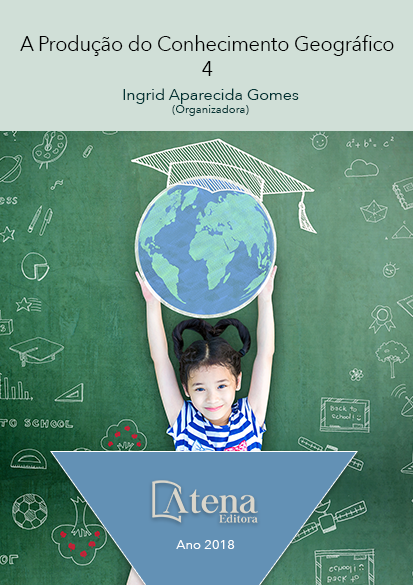
JEAN PIAGET E EDGAR MORIN FRAGMENTANDO O PENSAMENTO LINEAR NA CONSTRUÇÃO DO CONHECIMENTO CARTOGRÁFICO NAS AULAS DE GEOGRAFIA
Reconhecer a complexidade no
ato da construção do conhecimento é, uma
necessidade contemporânea. Pensando
no anel recursivo idealizado por Morin, na
comunicação entre a Geografia e a Cartografia,
o produto desta parceria de conceitos e saberes,
será o sujeito leitor e construtor de mapas.
Por sua vez esse sujeito que é co-produtor
desta comunicação dará direcionamento
epistemológico à disciplina Cartografia Escolar,
no Ensino Básico. O responsável pela formação
cartográfica do estudante é o professor de
Geografia. Para que possa cumprir com êxito
a sua função, terá que possuir habilidades e
competências no despertar das percepções
para a construção dos conceitos cartográficos.
Parece que construção do conhecimento
cartográfico, por parte dos professores de
Geografia, apresenta complexidades, uma vez
que, sobre a forma de incertezas, de acasos, de
fragmentações, nos tem desafiado na tentativa
de encontrar e propor caminhos. Assim, este
trabalho, objetiva contribuir com esta verdade
provisória, num diálogo com outras verdades
“momentâneas”, que virão em um princípio da
reintrodução do conhecimento, promovendo a
construção do conhecimento cartográfico de
forma significativa. O ensino da Cartografia na
Educação Básica é deveras importante, pois
desperta a percepção espacial, proporcionando
à criança o entendimento sobre o espaço em
que atua e se faz cidadão. Este texto procura
dialogar a construção do conhecimento não
linear da Geografia com o da Cartografia,
globalizando-os, pois os mesmos estão
imbricados um ao outro e, através das novas
tecnologias, poderá despertar o interesse dos
jovens contemporâneos.
JEAN PIAGET E EDGAR MORIN FRAGMENTANDO O PENSAMENTO LINEAR NA CONSTRUÇÃO DO CONHECIMENTO CARTOGRÁFICO NAS AULAS DE GEOGRAFIA
-
DOI: Atena
-
Palavras-chave: Cartografia Escolar, Ensino de Geografia e Cartografia para crianças
-
Keywords: School Cartography, Geography Teaching and Cartography for childre
-
Abstract:
Recognizing complexity in the
act of building knowledge is a contemporary
necessity. Thinking about the recursive ring
idealized by Morin in the communication between
Geography and Cartography, the product of this
partnership of concepts and knowledge will be
the reader and map maker. In turn, this subject
who is a co-producer of this communication will give epistemological direction to the
discipline Cartografia Escolar, in ensino básico. The person in charge of the cartographic
formation of the student is the professor of Geography. In order for it to successfully
fulfill its function, it will have to have the skills and competences in the awakening
of the perceptions for the construction of the cartographic concepts. It seems that
the construction of cartographic knowledge on the part of the teachers of Geography
presents complexities, since, on the form of uncertainties, accidents, fragmentations,
has challenged us in the attempt to find and propose ways. Thus, this paper aims to
contribute with this provisional truth, in a dialogue with other “momentary” truths, which
will come from a principle of the reintroduction of knowledge, promoting the construction
of cartographic knowledge in a significant way. The teaching of Cartography in Basic
Education is very important, since it awakens the spatial perception, giving the child
the understanding about the space in which it acts and becomes a citizen. This text
seeks to dialogue the construction of non-linear knowledge of Geography with that
of Cartography, globalizing them, because they are intertwined with each other and,
through the new technologies, may arouse the interest of contemporary young people.
-
Número de páginas: 15
- Paulo Roberto Florêncio de Abreu e Silva
- Antonio Carlos Castrogiovanni
- Ijaciara Barros de Abreu
- PAULO ROBERTO FLORÊNCIO DE ABREU E SILVA


